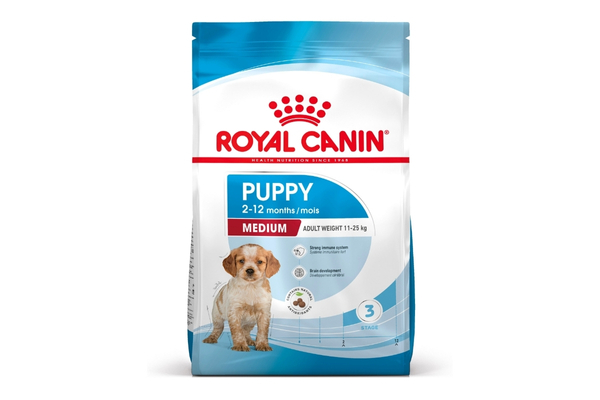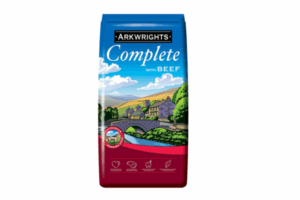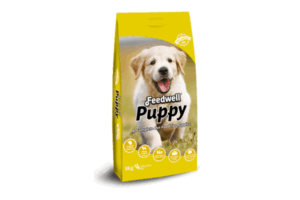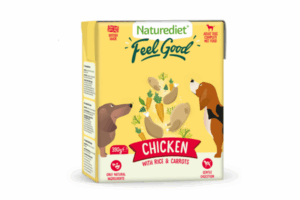If you’ve ever spent time researching premium dog food brands, you’ve likely encountered Royal Canin. This French-born company has built quite the reputation over the past 50+ years, and honestly, it’s hard to ignore them when you walk into any pet store or veterinary clinic. But what makes Royal Canin stand out in such a crowded market? After digging deep into their approach, ingredients, and real-world results, I’m here to give you the full picture.
Royal Canin isn’t your typical “one-size-fits-all” dog food brand. They’ve built their entire philosophy around what they call precision nutrition – basically, the idea that different dogs need different things based on their breed, age, size, and health conditions. It’s an approach that either resonates with you or it doesn’t, but there’s definitely science backing it up.
The Royal Canin Story
Back in 1968, a French veterinarian named Jean Cathary noticed something interesting in his practice. Dogs kept coming in with skin and coat problems, and he suspected their diet might be the culprit. Instead of just prescribing medication, he decided to create his own dog food recipe in his garage. That homemade formula became the foundation of what we now know as Royal Canin.
What started as a veterinarian’s side project has grown into one of the world’s largest premium pet food companies. The brand was acquired by Mars Petcare in 2001, but they’ve maintained that original focus on science-driven nutrition. Today, they employ over 220 pet nutritionists, veterinarians, and food scientists worldwide.
I’ve always appreciated that Royal Canin’s roots are in veterinary medicine rather than just pet food manufacturing. It shows in their approach – they think more like doctors than marketers when developing formulas.
Product Range and Nutritional Philosophy
Breed-Specific Nutrition
This is where Royal Canin really sets itself apart. They make breed-specific formulas for over 30 different breeds, from Chihuahuas to Great Danes. The idea is that a Bulldog’s nutritional needs differ significantly from a Border Collie’s, and honestly, that makes sense when you think about it.
Take their Labrador Retriever formula, for example. It’s designed with a donut-shaped kibble that encourages Labs to chew rather than gulp their food (anyone who’s owned a Lab knows this struggle). The formula also includes specific nutrients to support joint health, since Labs are prone to hip dysplasia.
Their German Shepherd formula focuses on digestive health and skin support, addressing two common issues in this breed. The kibble shape is designed to fit the breed’s jaw structure, making it easier for them to pick up and chew properly.
Life Stage Formulas
Beyond breed-specific options, Royal Canin offers comprehensive life stage nutrition. Their puppy formulas include DHA for brain development, while their senior diets focus on joint support and easier digestibility. The adult formulas strike a balance between maintaining muscle mass and preventing weight gain.
What I find particularly thoughtful is how they’ve segmented even further – they have different formulas for small, medium, and large breed puppies, recognizing that growth rates and nutritional needs vary significantly based on adult size.
Veterinary Therapeutic Diets
This is where Royal Canin really shines, in my opinion. Their prescription diets are available only through veterinarians and are designed to manage specific health conditions. We’re talking about formulas for kidney disease, digestive issues, food allergies, weight management, and more.
Their Hydrolyzed Protein diet, for instance, breaks down proteins into such small pieces that they’re unlikely to trigger allergic reactions. It’s not the most appetizing-looking food, but for dogs with severe food allergies, it can be life-changing.
Ingredient Quality and Sourcing
Royal Canin takes a different approach to ingredients than many premium brands. While some companies focus on “human-grade” or “novel” proteins, Royal Canin prioritizes nutritional precision over ingredient marketing appeal.
You’ll find ingredients like chicken by-product meal, corn, and wheat in their formulas – ingredients that some pet owners avoid. But here’s the thing: Royal Canin uses these ingredients because they provide specific nutritional benefits. Chicken by-product meal, for example, is actually a concentrated protein source that includes organs, which are highly nutritious.
Their quality control standards are impressive. They test ingredients multiple times throughout the manufacturing process and use techniques like DNA testing to ensure therapeutic diets don’t contain proteins they’re supposed to exclude. For dogs with severe allergies, this level of testing is absolutely essential.
One area where they could improve is transparency. While they publish nutritional information, they don’t always specify ingredient sourcing or provide as much detail about their supply chain as some competitors do.
Real-World Performance
I’ve spoken with numerous dog owners and veterinarians about Royal Canin, and the feedback is generally positive, especially for their therapeutic diets. One veterinarian told me that Royal Canin’s gastrointestinal formulas have helped resolve chronic digestive issues in dogs where other brands failed.
However, the feedback on their regular retail formulas is more mixed. Some dogs do fantastic on breed-specific formulas, while others show no noticeable difference compared to high-quality generic formulas. The higher carbohydrate content doesn’t work for every dog, particularly those with grain sensitivities.
Price is often a concern. Royal Canin is definitely on the expensive side, especially the veterinary diets. A 17-pound bag of their prescription food can cost $80-100, which adds up quickly for larger dogs.
Manufacturing and Safety
Royal Canin manufactures their products in company-owned facilities, which gives them better control over quality and safety. They have plants in the United States, Canada, and several other countries, with strict quality control protocols at each location.
They’ve had relatively few recalls compared to some other major pet food companies, which speaks to their manufacturing standards. When they do issue recalls, they tend to be proactive and transparent about the reasons.
The company invests heavily in research, working with veterinary colleges and conducting feeding trials. This scientific approach gives me confidence in their formulation process, even when I don’t love every ingredient choice they make.
Comparing Royal Canin to Other Brands
When comparing Royal Canin to other premium brands, it’s important to consider what you’re looking for. If you want a brand that focuses on novel proteins and grain-free formulas, Royal Canin probably isn’t your best bet. But if you’re dealing with a specific health issue or want a scientifically-formulated diet, they’re hard to beat.
Compared to brands like Blue Buffalo or Wellness, Royal Canin’s ingredient lists might look less appealing to some pet owners. However, their clinical results and veterinary endorsements often speak louder than their marketing materials.
If you’re considering other science-based brands, you might also want to explore Dog food from Tails, which offers a more personalized approach to nutrition based on your individual dog’s needs.
Cost Analysis
Let’s talk numbers. Royal Canin isn’t cheap, but the cost per serving varies significantly depending on which formula you choose. Their regular breed-specific formulas typically cost $2-3 per day for a medium-sized dog, while their therapeutic diets can run $4-6 per day.
For many pet owners, the higher cost is justified by the results, especially when dealing with health issues. I’ve seen dogs with chronic digestive problems thrive on Royal Canin’s prescription diets after failing on multiple other brands. In those cases, the cost becomes secondary to the dog’s wellbeing.
However, if your dog is healthy and doing well on a less expensive food, there’s no compelling reason to switch to Royal Canin just for the brand name.
What Kind of Dogs Is This Food Suitable For?
Royal Canin works best for dogs with specific needs rather than as a general-purpose food. Here’s where I’d recommend considering Royal Canin:
Dogs with health conditions: If your dog has been diagnosed with kidney disease, food allergies, digestive issues, or other chronic conditions, Royal Canin’s therapeutic diets are often the gold standard. These formulas are specifically designed to manage medical conditions and are backed by extensive research.
Purebred dogs with known breed-specific issues: If you have a breed prone to certain health problems – like joint issues in large breeds or digestive sensitivities in German Shepherds – their breed-specific formulas might be worth trying. The tailored nutrition can help address these predispositions before they become serious problems.
Dogs who haven’t thrived on other foods: Some dogs just seem to do better on Royal Canin’s formulas. If you’ve tried several high-quality brands without seeing optimal results, Royal Canin’s scientific approach might be what your dog needs.
Growing puppies of specific breeds: Their breed-specific puppy formulas can be particularly beneficial during the rapid growth phase, especially for large breeds where proper nutrition is essential for healthy development.
Royal Canin is less ideal for dogs who are already thriving on grain-free diets or those whose owners prioritize novel proteins and minimal processing. It’s also not the best choice if you’re looking for the most economical option and your dog doesn’t have specific health needs.
Final Verdict
So, is Royal Canin good dog food? The answer depends on your dog’s specific situation, but overall, yes, it’s a solid choice – particularly if you’re dealing with health issues or specific breed-related concerns.
What Royal Canin does exceptionally well is clinical nutrition. Their therapeutic diets are genuinely life-changing for dogs with chronic conditions, and their research-based approach to formulation is impressive. The quality control standards are high, and they have decades of proven results in veterinary settings.
However, Royal Canin isn’t necessarily the best choice for every dog. Their regular retail formulas, while well-formulated, don’t offer significant advantages over other high-quality brands for healthy dogs. The higher price point makes them a premium option that should deliver premium results.
The ingredient lists won’t win any marketing awards – you’ll find corn, by-products, and other ingredients that some pet owners avoid. But Royal Canin chooses ingredients based on nutritional function rather than consumer perception, which I respect from a scientific standpoint.
My honest assessment? Royal Canin is an excellent choice if your dog has specific health needs, breed-related concerns, or hasn’t thrived on other foods. For these situations, the science-backed formulations and clinical track record make the higher cost worthwhile. But if you have a healthy dog who’s already doing well on a less expensive food, there’s no compelling reason to switch.
It’s a brand I’d recommend consulting with your veterinarian about, especially if you’re considering one of their therapeutic diets. They’re not trying to be everything to everyone, and that focused approach is both their strength and their limitation.
Find the Perfect Food for Your Dog
Every dog is unique, and so are their nutritional needs. While Royal Canin might be perfect for some dogs, it might not be the ideal choice for yours. That’s why it’s important to choose dog food based on what your dog truly needs – their age, breed, activity level, health conditions, and individual preferences.
We’ve created a comprehensive questionnaire where you can fill in details about your dog and receive completely free recommendations for the three best dog food brands specifically for your furry friend. It takes less than a minute and considers all the factors that matter for your dog’s optimal nutrition. You can access our personalized dog food questionnaire via this link.






